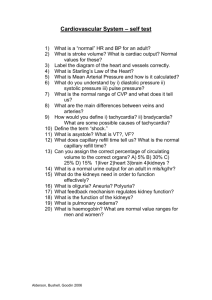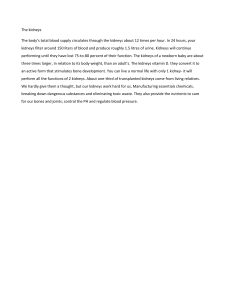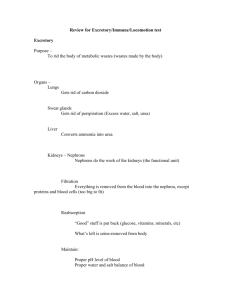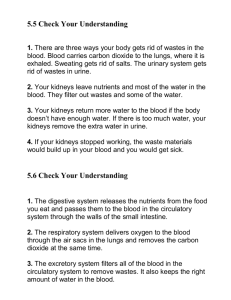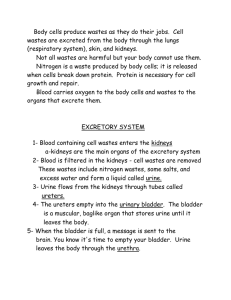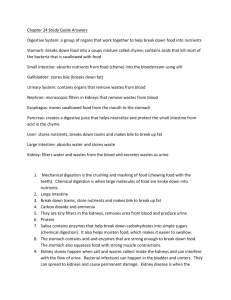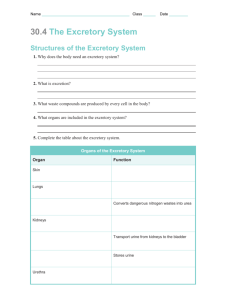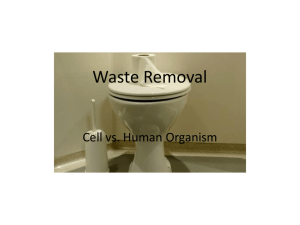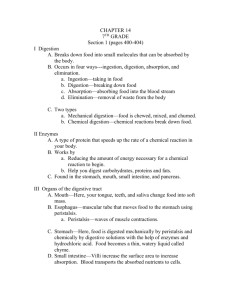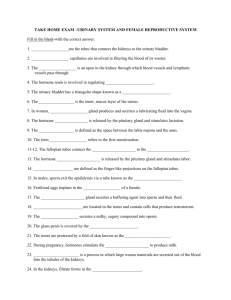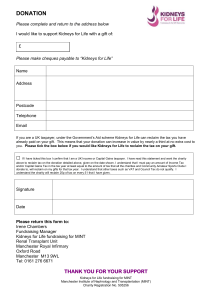Your kidneys are bean
advertisement
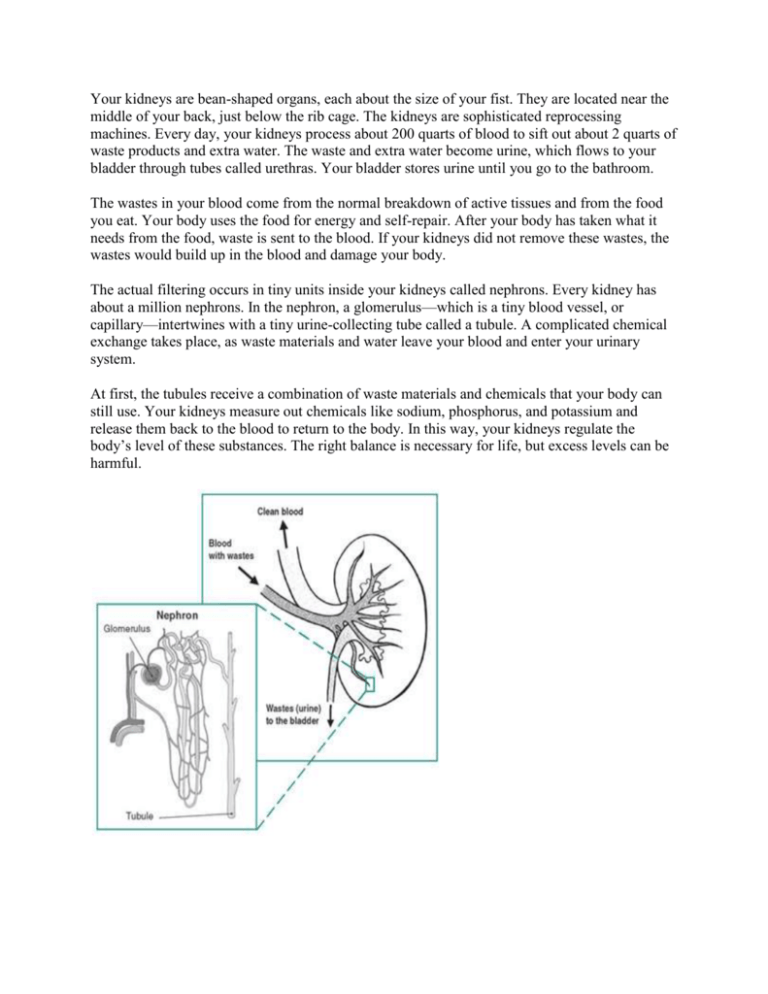
Your kidneys are bean-shaped organs, each about the size of your fist. They are located near the middle of your back, just below the rib cage. The kidneys are sophisticated reprocessing machines. Every day, your kidneys process about 200 quarts of blood to sift out about 2 quarts of waste products and extra water. The waste and extra water become urine, which flows to your bladder through tubes called urethras. Your bladder stores urine until you go to the bathroom. The wastes in your blood come from the normal breakdown of active tissues and from the food you eat. Your body uses the food for energy and self-repair. After your body has taken what it needs from the food, waste is sent to the blood. If your kidneys did not remove these wastes, the wastes would build up in the blood and damage your body. The actual filtering occurs in tiny units inside your kidneys called nephrons. Every kidney has about a million nephrons. In the nephron, a glomerulus—which is a tiny blood vessel, or capillary—intertwines with a tiny urine-collecting tube called a tubule. A complicated chemical exchange takes place, as waste materials and water leave your blood and enter your urinary system. At first, the tubules receive a combination of waste materials and chemicals that your body can still use. Your kidneys measure out chemicals like sodium, phosphorus, and potassium and release them back to the blood to return to the body. In this way, your kidneys regulate the body’s level of these substances. The right balance is necessary for life, but excess levels can be harmful.
